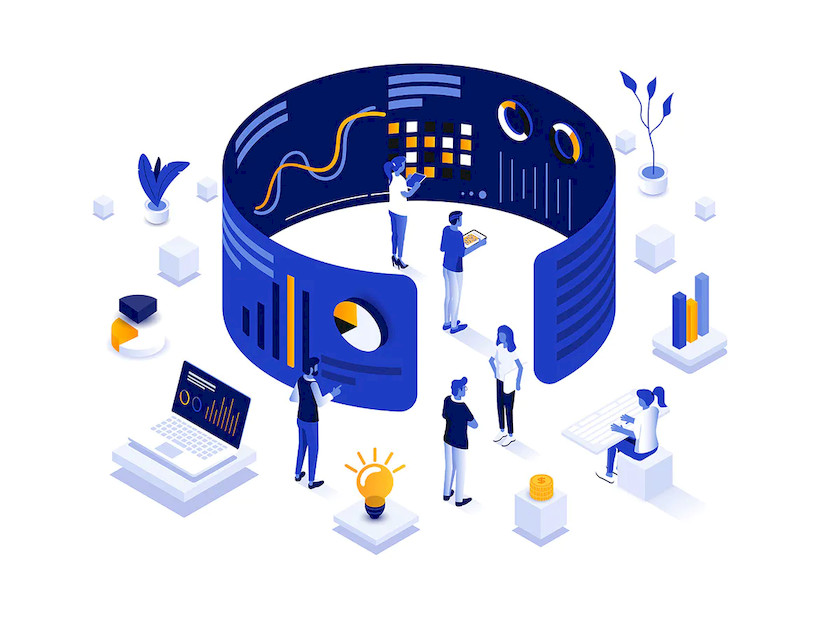With the popularity of the Internet and the widespread application of artificial intelligence, we have entered an era of information tentacles. Whether it is trivial matters in daily life or complex issues in professional fields, the answer seems to be found instantly. In the face of such a convenient world, will our problems less and less? This is a problem worth pondering. This article will discuss the multi -faceted impact of this phenomenon, and review the profound impact of technological progress on our thinking and problem consciousness.
The popularity of the Internet provides us with an unprecedented knowledge base. Whether it is academic research, technical problems, or a little confusion in life, we can find the required answers in just a few times. Search engines, online encyclopedia, social media and other platforms make information acquisition fast and efficient. People no longer need to spend a lot of time to check the information, or ask experts, almost all problems can be quickly solved through the Internet.
The convenience of this kind of information allows us to complete the tasks more efficiently and improve the efficiency of work and learning. For example, when writing homework, students can find relevant materials through the Internet and obtain authoritative references; at work, employees can use online tools and resources to quickly solve technical problems and improve work efficiency. The popularity of the Internet has greatly changed our learning and working methods.
The rapid development of artificial intelligence (AI) allows many complex problems to be solved through intelligent algorithms and machine learning. Smart assistants, voice recognition, image processing, autonomous driving and other technologies are constantly changing our lifestyle and working model. AI can not only answer our questions, but also predict our needs and provide personalized solutions.
For example, the intelligent customer service system can answer various questions of users within 24 hours and provide timely help and support; the AI diagnostic system in the medical field can quickly give preliminary diagnosis suggestions according to the symptoms and medical records of the patient, improve the accuracy of the diagnosis accurate Sexuality and efficiency; AI systems in the financial field can conduct risk assessment and investment analysis, provide scientific investment suggestions, and help users make more wise decisions. The application of artificial intelligence has made many complex problems solve efficient and intelligent.

From a certain perspective, the popularity of the Internet and artificial intelligence has indeed reduced our problems. The trivial matters in daily life can be easily solved through intelligent devices, and the problems at work can be quickly broken through efficient algorithms. However, does the "reduction" of this appearance mean that our real problem awareness is fading? This is a deep problem worth exploring.
With the advancement of technology, the way we get information and solve problems have become more and more dependent on external tools. While improving efficiency, this convenience also changed our way of thinking. We are becoming more and more accustomed to relying on ready -made answers. The awareness of the problem is gradually weakened, and the ability to innovate and critical thinking is gradually degraded.
Traditional learning and solving problems emphasize self -thinking and exploration. In the face of a question, we need to gradually find the answer through steps such as consulting information, analysis and thinking, experimental verification and other steps. In this process, we not only cultivate independent thinking and solving the ability to solve problems, but also accumulate valuable experience and knowledge. However, in today's information, we often tend to search for answers directly and ignore the process of independent exploration and thinking. This dependence makes our thinking more dependent on external tools, and the ability to innovate and critical thinking is weakened to a certain extent.
In the Internet era, the explosive growth of information has led us to the problem of overloading information. In the face of massive information, how can we quickly screen and judge its authenticity and value, and become a new challenge. In this process, our judgment and information processing capabilities are particularly important.

However, when facing massive information, many people often lack effective screening and judgment standards, and are easily misleading and confused. The fragmentation of information makes it difficult for us to fully understand the full picture of a problem, and it is easy to form one -sided cognition. Coupled with the spread of various false information and rumors, the difficulty of information judgment is even more integrated. In this case, we need to cultivate good information literacy and judgment ability, learn to effectively screen and analyze information to avoid being misleading and confused.
Although technological progress has eased our burden to a certain extent, it has also brought new challenges. How to maintain independent thinking and innovation in the information age is a question we must face. Only by continuous learning and thinking and maintaining a keen perception of problems, can we find real value and significance in complicated information.
In education, we need to pay attention to cultivating students' independent thinking and innovative ability, not just to teach ready -made knowledge and answers. By guiding students to conduct independent exploration and research, cultivate their problems and ability to solve problems, and help them form critical thinking and innovative thinking. In our work, we need to encourage employees to think and innovate independently, put forward new views and solutions to enhance the team's creativity and competitiveness.
With the popularization of intelligent devices and automation technology, we rely more and more dependence on technology in daily life and work. However, this dependence also has some negative effects. For example, due to excessive relying on the navigation system, many people have lost their ability to navigation and direction perception; due to the popularity of intelligent calculators, many people have gradually lost their basic mathematical computing capabilities. The degeneration of this skill may bring new problems and challenges in the future.

In family, we need to pay attention to cultivating children's basic living skills and independent thinking skills, not just relying on smart devices and technology. In education, we need to balance the teaching of traditional skills and new technologies to ensure that students do not lose their basic skills and abilities while mastering new technologies. In our work, we need to maintain the learning and adaptation of new technologies. At the same time, we must pay attention to the improvement and update of skills to avoid degeneration due to technical dependence.
The rapid development of technology has also brought new ethics and privacy issues. While providing convenience, artificial intelligence may also violate our privacy and rights. For example, the intelligent monitoring system may conduct comprehensive monitoring and records of our actions, causing privacy leaks; social media platforms may obtain and use our personal information through big data analysis to make precise advertising and sales. These issues call us more stringent supervision and specifications to technical applications to ensure that the development of technology is coordinated with ethics and privacy protection.
In family, we need to enhance children's awareness of privacy protection, and teach them how to protect their personal information and privacy when using the Internet and smart devices. In education, we need to strengthen the education of technical ethics and privacy protection, guide students to use technology correctly, and safeguard their rights and interests. In our work, we need to strictly abide by relevant laws and regulations to ensure that in the process of technology application, respect and protect the privacy and rights of users.
The advancement of technology has also brought new social problems. For example, the application of automation technology and artificial intelligence may lead to a reduction in job positions in some traditional industries and cause employment pressure. The rapid development of information technology may lead to the expansion of digital gaps and exacerbate social inequality and contradictions. These issues require us to start from various aspects such as policies, education, and social security to carry out comprehensive governance and response.

In family, we need to pay attention to the comprehensive development of children and cultivate their ability and literacy to adapt to future society. In education, we need to strengthen vocational education and skills training, help students master new skills and new skills, and improve their employment ability and competitiveness. In society, we need to promote the development of technology and the coordinated development of society through policy and measures, reduce digital gaps, and maintain the fairness and justice of society.
The advancement of technology has brought us unprecedented convenience and opportunities, but it also brings new challenges and problems. While enjoying the convenience brought by technology, we need to maintain the sensitivity of the problem and the enthusiasm for exploration, and cultivate our ability to think and innovate. Only in this way can we find true value and significance in the era of complicated information and achieve self -improvement and social progress. In this era full of challenges and opportunities, we need to welcome the transformation and development of technology with an open mind, continue to explore and pursue, and achieve higher goals and dreams.

图片源于网络